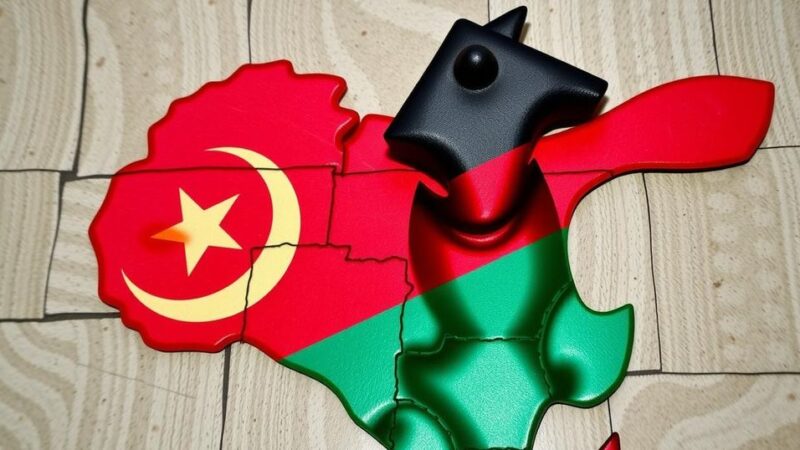The Nigerian government plans to rebase its CPI and GDP by 2025, aiming to integrate the informal sector and enhance policy accuracy. This move seeks to potentially restore Nigeria’s status as Africa’s largest economy, previously held until GDP rebasing in 2014. However, serious economic challenges such as high inflation, unemployment, and the exodus of multinational companies pose significant threats to genuine economic growth, highlighting the need for substantial and coordinated reforms.
The Nigerian government has revealed plans to re-evaluate its Consumer Price Index (CPI) and Gross Domestic Product (GDP) by 2025. This re-evaluation aims to amend the methodology used for these calculations, specifically by incorporating the informal sector, which constitutes approximately 60% of the national economic activities. This strategy seeks to improve policy precision and foster greater investor confidence. Furthermore, as Nigeria endeavors to reach the ambitious target of a $1 trillion GDP, it is anticipated that the new rebasing will result in a significant increase in its GDP figures, potentially restoring its title as Africa’s largest economy.
Historically, Nigeria claimed the title of Africa’s largest economy following a previous rebasing exercise that nearly doubled its GDP in April 2014. At that time, Nigeria’s GDP was estimated to be about 30% larger than South Africa’s, which had held the status for many years. Richard Dowden of the Royal African Society stated, “Nigeria had always had immense ambition to be the leader of Africa in economic size.” However, stakeholders have expressed the importance of realizing this ambition through genuine economic growth rather than merely through “clever paperwork.”
In 2023, the Nigerian Bureau of Statistics (NBS) revised its unemployment data methodology to accommodate casual and self-employed workers, resulting in a dramatic decline in the reported unemployment rate from 33.3% to approximately 5%. Despite this optimistic figure, the reality reflects a more alarming unemployment rate that could be as high as 45–50%. This discrepancy underscores the need for credible economic measures and reinforces the notion that without substantial, systemic reforms, GDP rebasing is predominantly a superficial endeavor.
The Nigerian economy has witnessed a contraction of about 31% in GDP size between 2014 and 2023, as reported by the International Monetary Fund (IMF), projecting a descent to the fourth-largest economy in Africa by the end of 2024. There is a shared consensus that credible institutional reforms are critical for genuine economic revitalization, as mere rebasing efforts lack meaningful substance without corresponding real economic activities.
The ongoing structural reforms initiated by the current administration, commencing on May 29, 2023, include the elimination of long-standing petrol subsidies, liberalizing the foreign exchange market, and addressing electricity subsidies. Nevertheless, these reforms have resulted in soaring inflation rates, reaching 33.88% as of October 2024, alongside staggering devaluation of the national currency and increasing food insecurity affecting over 30 million individuals.
Many multinational companies have exited Nigeria or reduced operations citing numerous challenges, including the foreign exchange crisis, inadequate energy supply, security concerns, and excessive taxation. This mass withdrawal is indicative of the myriad economic adversities beleaguering Nigeria’s growth potential and regional standing.
Reflecting on past experiences, it is evident that the current government received undue accolades following the 2014 GDP rebasing, without adequately preparing for the enduring responsibilities that accompany it. Nigeria could benefit from adopting a patient, long-term strategy akin to the Chinese model, opting for foundational economic solutions instead of fleeting quick fixes. An effective economic plan, with clear objectives and comprehensive strategies, is essential for fostering sustained growth and overcoming the pressing challenges that hinder Nigeria’s economic recovery.
Overall, essential reforms targeting significant issues such as security, macroeconomic stability, infrastructure deficiencies, and regulatory enhancements must be prioritized to address the foremost challenges plaguing Nigeria’s economy.
The article discusses Nigeria’s ambitious plans for rebasing its Consumer Price Index and Gross Domestic Product by 2025 in an effort to integrate its informal economy into official metrics. With 60% of its economic activities occurring in the informal sector, the government aims to foster improved economic policymaking and enhance foreign investor confidence. The prospect of regaining its status as Africa’s largest economy is a central theme, referencing Nigeria’s previous growth after its 2014 rebasing, while also expressing concerns regarding the inflation rate, unemployment figures, and systemic challenges facing the Nigerian economy today.
In conclusion, Nigeria’s intent to rebase its GDP and CPI by 2025 reflects a strategic move to recognize a larger portion of its economy, with the hope of rejuvenating investor confidence and reclaiming its economic stature in Africa. However, without meaningful reforms and consistent policy improvements addressing core economic issues, these efforts may remain largely cosmetic. A profound and well-coordinated economic strategy is imperative for establishing sustainable growth and improving the overall economic landscape in Nigeria.
Original Source: punchng.com







